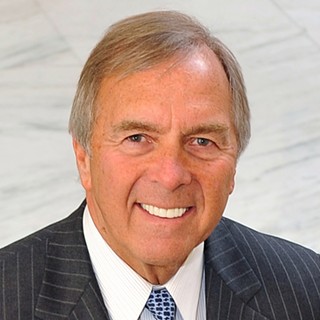Donald Trump spoke recently about "draining the swamp" in Washington, D.C. We do need changes, particularly to the two major political parties. Though Trump had proposed term limits, that's not the best way. Here are six other ways to bring the kind of change we need:
1 Pass a Constitutional amendment requiring candidates to receive at least 50 percent of the vote in 80 percent of all counties in their state or congressional district. Today, candidates can win a few populated counties and be victorious, ignoring smaller counties. That's unfair to smaller counties and the voters there. Washington state is a good example — it has 39 counties. Sometimes, incumbents don't win them all. Senate candidates running against incumbents are disadvantaged if they don't win the three most populated counties — King, Pierce and Snohomish. Former Washington Senator Warren Magnuson once remarked, "If one stands atop the Space Needle, you can see all the votes you'll need to win." One can see King, Pierce and Snohomish counties from the Space Needle. If incumbents are required to win at least 50 percent of 80 percent of each county, they would truly represent all their constituents. For example, little Garfield County (population about 2,200) rarely sees their U.S. senators. Nor do other small counties. Making sure that candidates visit and fight for votes in all counties will assure fair representation.
2 Pass a political party rule that incumbents must debate challengers in at least 80 percent of all counties of a state or congressional district. Ninety-five percent of all incumbents are re-elected. Usually, incumbents shun debates with challengers, not wanting them to receive attention, so incumbents usually agree to one or two Saturday night debates opposite a World Series game, assuring low viewership.
3 Pass a political party rule that puts limits the amount of carry-over cash from a prior campaign. Indiana's former U.S. Senator Evan Bayh is a good example. Having served in the Senate from 1999 to 2011, he took a break, earned a fortune, but maintained his multimillion-dollar Senate campaign account. Now he seeks a return to the Senate, using the account's millions to seek re-election. Limiting such accounts would eliminate the incumbent advantage for those employing the Bayh model. While money alone doesn't assure victory, it provides a major advantage against a challenger. Candidates should start even. Limiting spending in campaigns would also assure that Congress is not made up only of millionaires who spend their fortunes for election or re-election.
4 Eliminate superdelegates from the Democratic Party rules. This year, superdelegates gave Hillary Clinton a nomination advantage in her party. Challenger Bernie Sanders came close but couldn't overcome the superdelegates pledged to Clinton, so she was nominated. Without the superdelegates pledged to Clinton, Sanders might have won, representing an energized wing of the Democratic Party.
5 Though Donald Trump won the Republican nomination fairly, he did so without decorum, thrusting the 2016 presidential election into a situation where some 60 percent of voters distrust both major party candidates. Some don't consider him a Republican. Changing Republican Party rules could change the outcome. In order to be eligible for a Republican primary, a candidate must sign a pledge to certain party principles, to wit: agreeing to a preconceived public plan to balance the federal budget and pay down the national debt; agreeing to Ronald Reagan's 11th Commandment (thou shalt not speak ill of another Republican); agreeing to adhere to the Constitution; agreeing to take and pass the U.S. immigration and naturalization test (the same one immigrants must pass to become American citizens); emphasizing civic learning as part of a candidate's education platform; and agreeing to a reduced income tax program. Failure at any time to so pledge and adhere to those stipulations would result in the elimination of a candidate from the race and prohibition from running as a Republican. Such a program would prevent voters from supporting a nominee breaching such standards.
6 Assure that congressional districts are not gerrymandered. Some counties nationally resemble a Rorschach test, they're so convoluted to preserve Democratic or Republican advantage. Both parties should require that district boundaries are limited to 100 miles from a candidate's home.
This year's presidential contest has jeopardized not only the American presidency, but also candidates seeking lesser offices, placing voters in a dilemma unseen in prior elections. Assuring that campaign contributions and incumbency don't play an outsized role in electing quality individuals, appropriate changes can assure that Americans elect high-quality candidates who will properly do the people's business. ♦

















